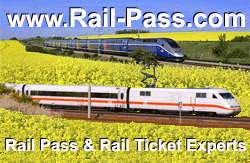Light Rail DefinitionsLight Rail Definitions The term light rail was coined in 1972 by the U.S. Urban Mass Transportation Administration (UMTA, the precursor to the Federal Transit Administration) to describe new streetcar transformations that were taking place in Europe and the United States. In Germany, the term Stadtbahn (to be distinguished from S-Bahn, which stands for Stadtschnellbahn) was used to describe the concept, and many in UMTA wanted to adopt the direct translation, which is city rail (the Norwegian term, by bane, means the same). However, UMTA finally adopted the term light rail instead. Light in this context is used in the sense of "intended for light loads and fast movement", rather than referring to physical weight. The infrastructure investment is also usually lighter than would be found for a heavy rail system. The Transportation Research Board (Transportation Systems Center) defined "light rail" in 1977 as "a mode of urban transportation utilizing predominantly reserved but not necessarily grade-separated rights-of-way. Electrically propelled rail vehicles operate singly or in trains. LRT provides a wide range of passenger capabilities and performance characteristics at moderate costs." The American Public Transportation Association (APTA), in its Glossary of Transit Terminology, defines light rail as: ''...a mode of transit service (also called streetcar, tramway, or trolley) operating passenger rail cars singly (or in short, usually two-car or three-car, trains) on fixed rails in the right-of-way that is often separated from other traffic for part or much of the way. Light rail vehicles are typically driven electrically with power being drawn from an overhead electric line via a trolley (pole) or a pantograph, driven by an operator onboard the vehicle, and may have either high platform loading or low-level boarding using steps." However, some diesel-powered transit is designated light rail, such as the O-Train Trillium Line in Ottawa, Ontario, Canada, the River Line in New Jersey, United States, and the Sprinter in California, United States, which use diesel multiple unit (DMU) cars. Light rail is similar to the British English term light railway, long-used to distinguish railway operations carried out under a less rigorous set of regulations using lighter equipment at lower speeds from mainline railways. Light rail is a generic international English phrase for these types of rail systems, which means more or less the same thing throughout the English-speaking world. The use of the generic term light rail avoids some serious incompatibilities between British and American English. The word tram, for instance, is generally used in the UK and many former British colonies to refer to what is known in North America as a streetcar, but in North America tram can instead refer to an aerial tramway, or, in the case of the Disney amusement parks, even a land train. (The usual British term for an aerial tramway is cable car, which in the US usually refers to a ground-level car pulled along by subterranean cables.) The word trolley is often used as a synonym for streetcar in the United States but is usually taken to mean a cart, particularly a shopping cart, in the UK and elsewhere. Many North American transportation planners reserve streetcar for traditional vehicles that operate exclusively in mixed traffic on city streets, while they use light rail to refer to more modern vehicles operating mostly in exclusive rights of way, since they may operate both side-by-side targeted at different passenger groups. The difference between British English and American English terminology arose in the late 19th century when Americans adopted the term "street railway", rather than "tramway", with the vehicles being called "streetcars" rather than "trams". Some have suggested that the Americans' preference for the term "street railway" at that time was influenced by German emigrants to the United States (who were more numerous than British immigrants in the industrialized Northeast), as it is the same as the German term for the mode, Straßenbahn (meaning "street railway"). A further difference arose because, while Britain abandoned all of its trams except Blackpool after World War II, eight major North American cities (Toronto, Boston, Philadelphia, San Francisco, Pittsburgh, Newark, Cleveland, and New Orleans) continued to operate large streetcar systems. When these cities upgraded to new technology, they called it light rail to differentiate it from their existing streetcars since some continued to operate both the old and new systems. Since the 1980s, Portland, Oregon, has built all three types of system: a high-capacity light rail system in dedicated lanes and rights-of-way, a low-capacity streetcar system integrated with street traffic, and an aerial tram system. The opposite phrase heavy rail, used for higher-capacity, higher-speed systems, also avoids some incompatibilities in terminology between British and American English, for instance in comparing the London Underground and the New York City Subway. Conventional rail technologies including high-speed, freight, commuter, and rapid transit urban transit systems are considered "heavy rail". The main difference between light rail and heavy rail rapid transit is the ability for a light rail vehicle to operate in mixed traffic if the routing requires it. People movers and personal rapid transit are even "lighter", at least in terms of capacity. Monorail is a separate technology that has been more successful in specialized services than in a commuter transit role.
| |||||
| |||||















